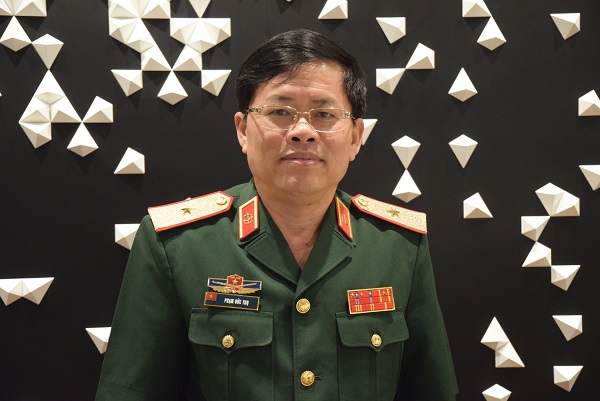What are your thoughts on the security situation in Asia?
The situation in Asia, especially on the Korean Peninsula and in the South China Sea is changing subtly, and the risk of confrontations is increasing. For Vietnam, issues in the South China Sea in particular, are of the highest priority. This is because they are related to economic development and structural maintenance.
Vietnam is taking a stance to establish its territorial claims in the South China Sea. Every territorial dispute should be resolved peacefully in accordance with international law and the United Nations Convention on the Law of the Sea, which was adopted in 1982. Based on the right to self-defense, Vietnam maintains a posture to protect the independence and sovereignty of the state, and the integrity of its territory.
We are hoping for the involvement of other countries from outside the region, which can contribute to regional peace and stability, while maintaining order in accordance with international law. If the major powers intensify their involvement in the region to pursue their own national interests, they should take responsible actions that respect the independence, sovereignty and national interests of each country in the region, and promote a win-win relationship.
In addition to the South China Sea issue, dealing with non-traditional security issues such as international terrorism, environmental pollution, climate change, etc. is also considered important.
In these circumstances, defense exchanges between Japan and Vietnam are expanding.
Cooperative relations are progressing favorably based on the "Extensive Strategic Partnership for Peace and Prosperity in Asia", agreed between the Prime Ministers of both countries.
At the same time, in the field of defense and security, there is a "Memorandum of Understanding on Vietnam-Japan Defense Cooperation and Exchange", and regular exchanges between high-level government officials, working-level consultations and information sharing are already taking place. Cooperative relations concerning the disposal of unexploded ordnance, remaining after the war, and the disposal of toxic chemical substances are also included in the contents of the agreement. These activities strengthen the relationship between the two countries with the purpose of contributing to the interests of the citizens of each and the peace, stability and development of the region and the world. It is very gratifying that these defense and military exchanges are developing.
Furthermore, defense exchanges in Track 1.5 such as the mutual exchange program for senior field officers from Vietnam and Japan have great significance in strengthening the relationship between the two countries. Mutual visits between Japan's Self-Defense Forces and the Vietnamese People's Army and frequent personnel exchanges, increase the number of defense officials who know each other's countries and builds trust. These activities also establish strong human relationships at multiple levels and provide opportunities for the private channels in the security field to develop.
These exchanges and cooperation will not only protect and enhance the interests of the citizens of both countries; they will also contribute to the peace, stability and development of the region and the world. Peace, friendship and cooperation are what people should aim for. Projects with the purpose of peace, friendship and cooperation should be encouraged and respected regardless of whether the initiative is led by a state or a private organization. On the behalf of the Vietnamese Ministry of Defense visit team, I would like to express our appreciation to the Sasakawa Peace Foundation who hosts this exchange program.
We thank you for this opportunity.
